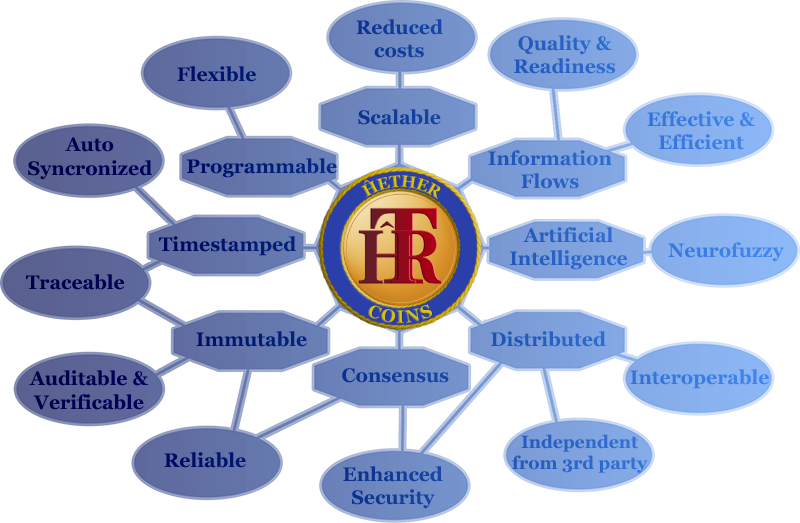Hether Distributed Ledger Technology DLT
DLT stands for Distributed Ledger Technology, which is a type of technology that enables multiple participants to have access to a shared database or ledger of information. DLT uses a decentralized and distributed network of computers to maintain the ledger, rather than relying on a single central authority. This feature of DLT makes it highly secure, transparent, and resilient against tampering or hacking attempts, and has numerous applications in industries such as finance, healthcare, and supply chain management. The most well-known example of DLT is blockchain technology, which powers cryptocurrencies like Bitcoin and Ethereum, but there are also other types of DLT such as directed acyclic graphs (DAGs) and hashgraphs.


Cryptography
DLT uses advanced cryptographic techniques and decentralized architecture to ensure the integrity and immutability of data
Security
DLT, or Distributed Ledger Technology, is a cutting-edge digital platform that provides a secure and transparent way to record, verify, and share data across a network of users.
Smart Contracts
DLT networks such as Polygon enable the creation of smart contracts, programmable self-executing agreements that can automate complex workflows and reduce the need for manual intervention, resulting in faster and more efficient business processes.
Applications
DLT can be applied to various industries, including finance, healthcare, supply chain management, and more, providing businesses with an efficient and cost-effective way to manage their operations and transactions.
Decentralized
By removing intermediaries and central authorities, DLT enables faster, more secure, and more efficient peer-to-peer transactions, reducing costs and increasing trust and transparency.
Growth
DLT is a rapidly growing field with a wide range of potential applications, and its adoption is expected to increase in the coming years as more businesses and industries recognize its benefits.

About
Security Services & Solutions
DLT provides several security services and solutions that help ensure the integrity and confidentiality of data on a decentralized network. Here are some of the key security services and solutions that DLT offers:
Cryptographic security: DLT uses advanced cryptographic techniques to secure data on the network, making it virtually impossible for unauthorized parties to access or modify the information.
Decentralized architecture: DLT is designed to operate on a decentralized network, with no central point of control or failure. This architecture reduces the risk of a single point of failure, making it more resilient to cyber attacks.
Immutable ledger: DLT provides an immutable ledger of all transactions and data on the network, ensuring that the data cannot be altered or deleted by anyone, including network administrators.
Access control: DLT provides a range of access control mechanisms, including public and private keys, smart contracts, and permissioned networks, to ensure that only authorized parties can access the data on the network.
Transparency: DLT provides transparency by allowing all participants on the network to view the ledger and the transactions, which can help improve trust and reduce the risk of fraud.
Smart contracts: DLT allows for the creation of smart contracts, which are self-executing contracts with the terms of the agreement between buyer and seller being directly written into lines of code. This enables faster, more secure, and more efficient business processes.
Data encryption: DLT provides data encryption capabilities to ensure that sensitive information is protected and only accessible by authorized parties.

Tools
Free Tools, Software & Resources
DLT provides a range of free tools, software, and resources that can help businesses and developers get started with building and deploying decentralized applications. On polygon network, an open-source SDK allows developers to build and deploy scalable blockchain applications.
Prevention
Proactively Eliminate Vulnerabilities
Polygon network has regular code audits. The team implements best practices in regards to security and conducts security training to developers and other network participants can help them understand common vulnerabilities and how to avoid them.
